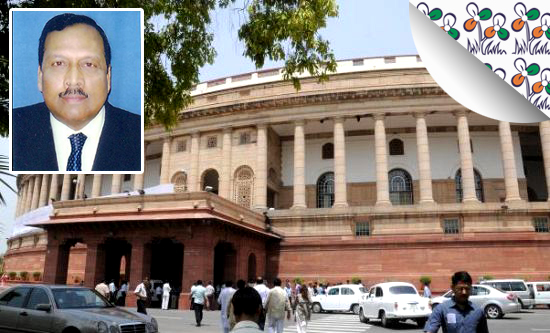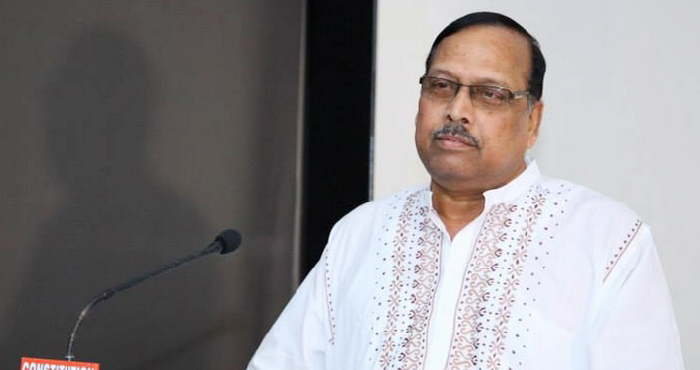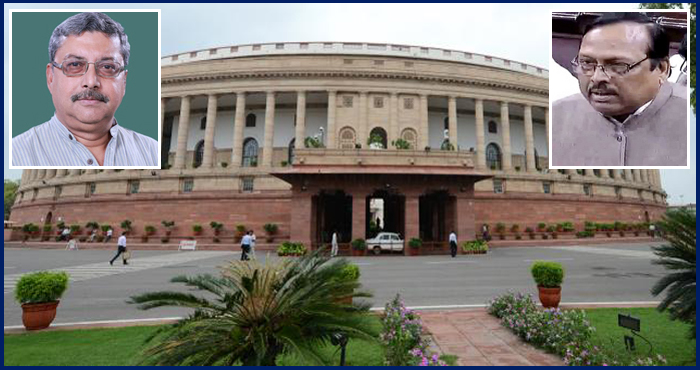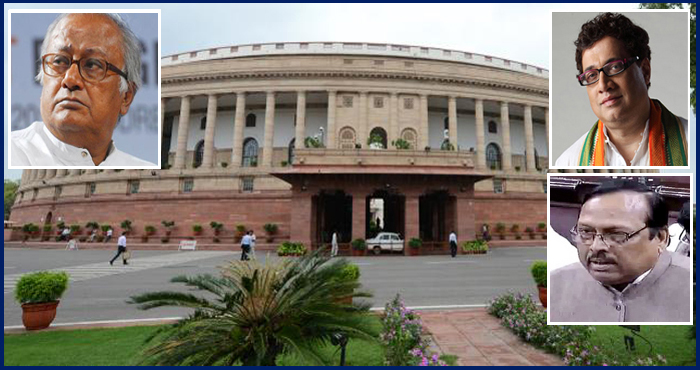Sir, when I first heard the news of tragic death of Rohit Vemula that occurred a month back in the University of Hyderabad, in my mind’s eye, I could see that a bright young dalit scholar was hanging over the face of our democracy, and the Constitution, which speaks of abolition of casteism and prohibits indiscrimination of any form among our people, rather protects and promotes the interest of the SCs/STs/OBCs and the minorities. Rohit’s death was not the first one of such incident. It also happened in the past at regular intervals. The protests from different corners demanding justice have not been responded with remedial action, not to speak of sympathetic intervention by the Government of the day or of the past.
Sir, Rohit Vemula’s suicide note explains everything. I need not elaborate. This unfortunate incident once again establishes the fact that even bright scholars, belonging to Backward Class, are not safe within our University campus and that too, after 69 years of Independence! What prompted a member of Union Cabinet to write a series of letters to Government for action against the students? If we believe in the autonomy of universities, then it is incumbent upon the authorities of the universities to take stock of the situation within the campus and act accordingly.
Sir, Trinamool Congress was the first Party to send its high-level delegation, led by our Rajya Sabha leader Shri Derek O’Brien, to Hyderabad soon after the tragic death of Rohit not only to ventilate our anguish and agony, but also to express our solidarity with the students and the youth demanding justice. Sir, more so, because we cannot alienate 31 crores of our people from the mainstream of our society for any reason whatsoever, the cruelty which was inflicted upon Rohit Vemula must not be repeated and the caste discrimination must come to an end once and for all and all the culprits, who are directly or indirectly responsible for the tragic end of Rohit’s life, must be brought to book.
Sir, as far as the incident that took place at the Jawaharlal Nehru University is concerned, the admitted position is that a commemorative function to observe the death anniversary of a hard core terrorist, who was executed pursuant to court’s order, was organized in the name of cultural evening on the 9th February 2016 at the Jawaharlal Nehru University when anti-India slogans to glorify the deadly terrorists, who were instrumental in attacking the Indian Parliament and elsewhere, were reportedly raised. The main accused has, of course, denied his involvement in the incident and condemned the act of antinational activities. But the question is why the permission for organizing the programme was accorded knowing it full well that such commemorative function was also held in the campus twice in succession soon after the execution of the terrorists following the Supreme Court verdict. Was there any intelligence failure? Why was the permission withdrawn at the last moment and at whose behest?
It is reported that some outsiders and noted separatists thronged the campus on the fateful evening and raised slogan and posters glorifying the terrorists since executed and also demanding azadi or freedom for Kashmir and right to secede from India. While this is extremely deplorable, the question arises as to why no preventive measure could be initiated by the Government or the authorities concerned by discussing it with the university authorities and the leaders of the students’ union and how the separatist elements from outside the campus were allowed to enter and resort to anti-national acts. The Government owes an answer to this august House.
Sir, as soon as the videos of 9/2 incident went viral, accusations and counter-accusations reached its ugliest form both in the electronic media and the print media as also in the social and anti-social websites. When it was incumbent upon all the political parties and other stakeholders to maintain absolute restraint at the outset to defuse the tension, it was seen that there was a rat race among some political parties to take credit, this way or that way, by supporting or not supporting such an ugly incident. Many of our leaders jumped into the fray for reaching the media in a bid to adding fuel to the fire, knowingly or unknowingly. Even a very senior functionary of the Government acted irresponsibly by spreading some information on twitter which was later proved to be baseless. Sir, Kolkata had to face the immediate effect of the Jawaharlal Nehru University incident. But our Government in West Bengal dealt with the situation in a diligent manner which resulted in restoration of peace and tranquillity. Our party workers also avoided all sorts of provocations under the instructions of our beloved leader, Ms. Mamata Banerjee.
Sir, while we condemn all acts of anti-national activities wherever they may take place in the country, we decry any attempt to brand anyone as anti-national who is otherwise not involved in such activities. Administrative excess to curb a dissenting voice is deplorable as its goes against our constitutional safeguards. Similarly, the attack on journalists at Patiala House Court shows the worst form of brutality inasmuch as it was resorted to by a section of advocates who are otherwise duty bound to defend the law and not to take the law in their own hands. Sir, there are reports that a number of video and audio tapes were tailored and background of some of the videos were also doctored. Now the question is as to who doctored the video and audio tapes.
The Government must come forward with all information to this august House. Sir, so far as the issues of sedition and Section 124A of the Indian Penal Code are concerned, as was explained by the hon. Leader of the House, I would like to add a few words to that. The Section was not in the original Act of 1860, but it was incorporated later on in 1870 by the then British Government actually to punish our freedom fighters, to curb the voice of our media and intellectuals. Sir, the word ‘sedition’ was first interpreted in the case of Queen versus Bal Gangadhar Tilak in the year 1897 by the Privy Council.
Even Mahatma Gandhi was not spared. He was also booked under this Section 124A which led Mahatma Gandhi to say, and I quote, “Affection cannot be manufactured or regulated by the law. If one has no affection for a person, one should be free to give the fullest expression to his disaffection so long as he does not contemplate, promote or incite violence.” Our Supreme Court, in a plethora of cases, has also ruled in that direction. Therefore, while determining the elements of disaffection to the Government or the nation, utmost care and restraint is needed by the law enforcing authorities. But, this Section 124A has been mis-utilised both by the colonial rulers and the successive Governments in free India to throttle the voice of dissent or disaffection which must not be followed by the present Government. In England, since 2010, the sedition law is restricted against noncitizens. In the USA, an identical provision of sedition in the Smith Act has allowed to be confined now to the military only. Therefore, it is high time that we should also have a relook at Section 124A of IPC to avoid misuse and all sorts of harassment even though we sincerely believe that liberty cannot be enjoyed as a licence.
Our nationalism is the principle of the majority of our countrymen, but ultranationalism, under no circumstances, is accepted. Similarly, dissension is one of the guiding factors of our liberal democracy, but ultra-leftism has always been rejected by our people. This is why, a particular political party, which denounced Indian independence and used to burn out copies of our Constitution and National Flag on the streets of various towns and cities of India raising the slogan, ‘यह आज़ादी झूठी है’, and accusing India as the invader during the Sino-Indian War in 1962, has been compelled to accept our political mainstream and now, they have become a part of our political system. Sir, there is another party, which after experiencing defeats after defeats in States after States and also at the national level, reducing itself to a microscopic minority, is now trying to fish in troubled waters or any stream of water so that it can get back its monopoly to rule and ruin the country. Somewhere it joins hands with fissiparous elements and forging unholy alliances with a party which not only butchered thousands of its workers but all along worked against the unity and integrity of the country.
Sir, my final words would be that then there is rise of the third party, which propagates jingoism and conveniently shakes off the tenets of patriotism, what the nation today wants more and more is not jingoism but patriotism. We are committed to our motherland to protect our national integrity at any cost. Sir, with your kind permission, I want to conclude with the words of Tagore.
“O amar desher maati, tomar pore thekai matha”






